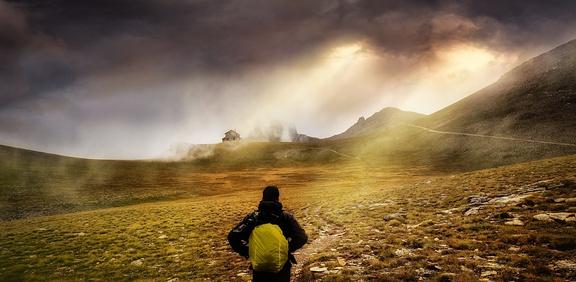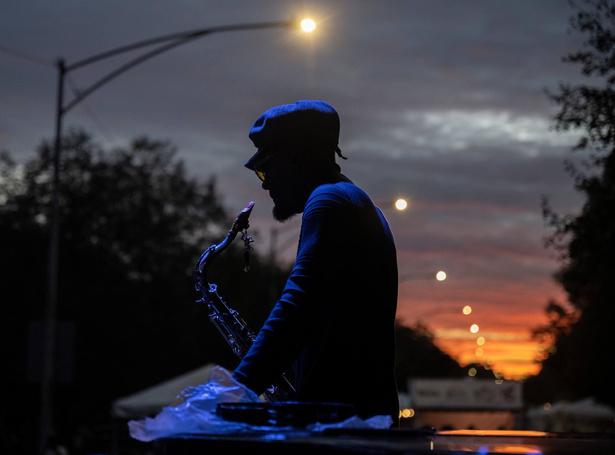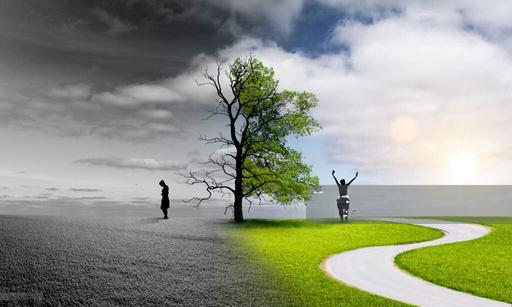PHILANTHROPY IN ACTION: PASSION TO SERVE



492 001 | MW 11:30 - 12:45 | CRN: 10572
We often wrestle with how to put our good intentions more fully into action in ways that will benefit our community as well as enhance our individual lives Digging into the meaning of philanthropy which literally means the "love of people" can give us refreshed purpose in understanding why we engage in these endeavors Volunteering in America is at an all-time record high; however, there can often be challenges between making the world a better place and actually achieving it This seminar empowers students to maximize their potential to participate fully in philanthropic service through the lens of alleviating material poverty by investigating theoretical constructs, viewing video examples, incorporating fiction reading, and practical hands-on experience The call for aid in our world is great– our passion to serve must be greater
GLOBALIZE THIS: FEAR AND LOATHING IN THE AGE OF PROGRESS AND PROSPERITY
 Instructor | Keith Jaggers
Instructor | Keith Jaggers
492 002 | TR 11:00 - 12:15 | CRN: 10573
In this seminar we will explore both the perils and promises of globalization For better or worse, the process of globalization is fundamentally transforming the economic, cultural and political foundations of the globe While globalization holds out the promise of progress – providing significant opportunities for the emancipation of much of the world's population from the tyranny of poverty, ignorance and political repression – it simultaneously evokes a sense of fear and loathing throughout much of the globe Globalization is a contentious process -- its meaning almost entirely dependent on who is talking about it Pro-market economic reformers, displaced workers, environmental and human rights activists, security experts and cultural nationalists, to name a few, all compete for the right to stake claim to the idea of globalization
and shape public perceptions about its potential impact on the world in which we live In a very real sense globalization has become the buzzword that serves to crystallize disagreements concerning the speed and direction of social and political change in the world at-large While both the meaning and merits of globalization have become highly politicized in recent years, with intellectual debate about this topic sometimes transforming itself into contentious political action and legislation in this class we will seek to evaluate the origins, nature and impact of this phenomenon by using insights and analytical tools from the humanities (e g , history and philosophy) and the social sciences (e g , economics, political science, psychology and sociology)
H O N O R S 4 9 2 S e m i n a r s Spring 2024
TheseseminarscountstowardAUCCcredit Therearevarioustopics,sochooseonethatisofinteresttoyou!
Instructor | Francie Glycenfer
UNDERSTANDING THE QUEST FOR HUMAN LIBERATION THROUGH PHILOSOPHY AND FILM

 Instructor | Keith Jaggers
Instructor | Keith Jaggers
492.003 | T 2:00 - 4:30 | CRN: 18134
The modern age has rightly been referred to as the “ age of freedom ” Compared to life in ancient and medieval societies – where superstition, communal obligations and entrenched hierarchies of social power effectively undermined the autonomy of individual action and thought –the modern age represents a “rational” rejection of these traditional forms of social stratification, authority and control Forged by the ideals of the European Enlightenment, the modern world was envisioned to be a world in which the individual would be liberated from the dead hand of ignorance, tradition and hierarchy While the desire of humankind to shed the yoke of unjust authority relations and systems of social control is, as noted by President Bush, “ on the march,” nevertheless, the appropriate role of freedom in society continues to be a matter of considerable debate and conflict While “spreading freedoms blessings” may be “the calling of our time,” what, precisely, does this mean? What does it mean to have free will;
to live in a free society; to express oneself freely? Moreover, is the march of freedom inevitable? Is it desirable? Should it be unbridled in its promotion and construction? Is freedom the “natural” condition of mankind – “the birthright and deep desire of every human soul” -- or do humans actually covet other values – personal happiness, social order, fealty to God, commitment to community, the pursuit of social justice, etc – which may actually conflict with the unchecked promotion of individual freedom? While there is a temptation in our society to uncritically accept the idea of freedom as an unalloyed “good,” in this course we will seek to deconstruct the idea of freedom and systematically explore its social and ethical boundaries In this course we will view the concept of freedom through the analytical lens of philosophy and the artistic lens of modern cinema Why cinema? The arts – painting literature theatre music dance and film – play an important role in human society not simply because they entertain us but also because they force us to reflect upon and challenge our commonly held beliefs concerning social reality (metaphysics), human knowledge (epistemology), and moral values (axiology) In other words, the arts help us better understand, as well as shape, our collective human experiences Contemporary cinema while often infantile and banal nevertheless possesses the capacity to both challenge and mold our values, desires and even identities with its powerful narratives and images In this class we will use film as a pedagogical tool for better understanding the role of freedom in our lives Every week we will analyze a film using different conceptions of freedom found in philosophy, psychology, theology and economics As such, the films provide the context under which we can explore the philosophical concepts under investigation In addition to exploring how modern cinema addresses the idea of freedom, we will also explore the significance of this artistic medium as a mechanism for both social liberation and social control Throughout the course of the semester we will examine this topic by approaching the concept of freedom through a myriad of distinct -- and often incompatible –philosophical perspectives: (1) psychological freedom; (2) spiritual freedom; (3) biological freedom; (4) metaphysical freedom; (5) social freedom; (6) political freedom; and (7) economic freedom As we shall discover, only by exploring the many dimensions of freedom, and then investigating how each dimension is influenced by the degree of freedom found in the others, will we be able to achieve a deeper understanding
Instructor | John Kitchens
492.004 | TR 3:30 - 4:45 | CRN: 10574
Ernest Hemingway once referred to Paris as a Moveable Feast, and he wrote a book under that title describing the city while he lived there along with other “ex-pats” such as F Scott Fitzgerald and Gertrude Stein Their presence is just the “tip of the iceberg” when it comes to the literature, arts, and philosophy that was produced in, or inspired by, Paris in the 1900s Artists such as Pablo Picasso and Salvador Dali writers such as Henry Miller and Richard Wright, musicians like Josephine Baker and Sydney Bechet, and poets such as James Joyce and Allen Ginsberg all spent time in Paris From Existentialism and Surrealism to Modernism and Postmodernism, and including philosophers such as Jean-Paul Sartre, Michel Foucault, Guy Debord, and Jean Baudrillard, the artistic and philosophical contributions that came out of Paris in this one century were some of most influential in modern history Through the use the film, arts, fiction, theatre, poetry, prose and historical investigation this class will explore all the rich production within Paris of this time period
G IMAGE Instructor | Dan
 Obluda
Obluda
492 005 | TR 3:30 - 4:45 | CRN: 10575
Much of the media we consume on a daily basis contains a combination of images, sounds, and music, and this synthesis of art forms enables creators to generate highly nuanced characters and stories Over years of exposure to films and television, we have acquired a shared knowledge of conventions and expectations that direct how we interpret various forms of media Anyone can close their eyes and identify complex emotions and ideas (loss, transcendence, fear, etc ) just from a film's soundtrack What types of sounds and music evoke heroism in your mind? Why is the music that accompanies a monster often scarier than its appearance - for example Jaws or A Quiet Place? How do music and ambient sounds bring you into the world of a video game? This seminar will explore the
relationship between the entire universe of moving images (from film television video games YouTube TikTok advertisements, social media, and others) and that of music and sound We will investigate how music functions within these contexts and explore how the synthesis of music and moving images can reflect and influence our identity and culture
CHICAGO'S MUSIC: THE CROSSROADS OF HISTORY, RACE, AND CULTURE

 Instructor | John Pippen
Instructor | John Pippen
492 006 | TR 2:00 - 3:15 | CRN: 13055
What can music tell us about a city? How have musical practices been used to create community? This course considers these questions by examining the city of Chicago A center for trade and the major metropolis of the American Midwest, Chicago provides many insights into how people create community through music Blues, jazz, classical music soul punk and hip-hop have all found homes in Chicago Despite the widespread popularity of these practices, racial and class-based divisions persist in Chicago Indeed, some have used musical practices to create exclusive groups and to reinforce division In exploring the history of Chicago's music students will gain foundational listening skills and music vocabulary and will practice listening through a variety of theoretical, analytical, historical, and cultural lenses
p1
PARIS, A MOVEABLE FEAST: THE ARTS, LITERATURE, AND PHILOSOPHY OF PARIS IN THE 20TH CENTURY
Instructor | Jana Raadik Cottrell
492 007 | TR 9:30 - 10:45 | CRN: 13884
There's only one thing for sure in life and that's Change We as individuals change (i e , beliefs, attitudes and behaviors) throughout our lifespan and so does the world around us In lieu of today's rapid societal, environmental, economic, technological, etc changes, the need for more balanced development is acute Bold and transformative steps are necessary to shift global societies on a positive course of change to a more sustainable and resilient path Todays young generation is undoubtedly one of the most influential agents of change for a more sustainable future Changing worldviews and the ability to take advantage of the advancements of today's science and technology create endless opportunities and pose challenging ethical responsibilities

MAKING A DIFFERENCE, BUT HOW? A COURSE ON CIVIC ENGAGEMENT
 Instructor | Anne Scott
Instructor | Anne Scott
492 008 | MWF 11:00 - 11:50 | CRN: 16044
Through our social media, news sources, daily conversations, personal experiences, and even some of our classes, we have become increasingly aware of the world's many immediate and chronic problems, their characteristics, and their complex relationships
Starting somewhere - anywhere - to try to solve these issues can often seem overwhelming Sometimes these issues are right at our front doors, within our local and regional communities waiting for a helpful response from our politicians, cities, students, activists, or leaders! How do we make a difference in this complex world of ours? In this seminar, you will learn not only about the historical background and context for the idea of "civic engagement" but about the ways, both big and small, that an engaged citizenry can help shape our communities and world
for the better What does a positive and relationship between the entire universe of moving images (from film television, video games, YouTube, TikTok, advertisements, social media, and others) and that of music and sound We will investigate how music functions within these contexts and explore how the synthesis of music and moving images can reflect and influence our identity and culture
p1
CHANGE - SOCIAL, ENVIRONMENTAL AND ECONOMIC PERSPECTIVES



 Instructor | Keith Jaggers
Instructor | Keith Jaggers


 Instructor | Keith Jaggers
Instructor | Keith Jaggers
 Obluda
Obluda

 Instructor | John Pippen
Instructor | John Pippen

 Instructor | Anne Scott
Instructor | Anne Scott